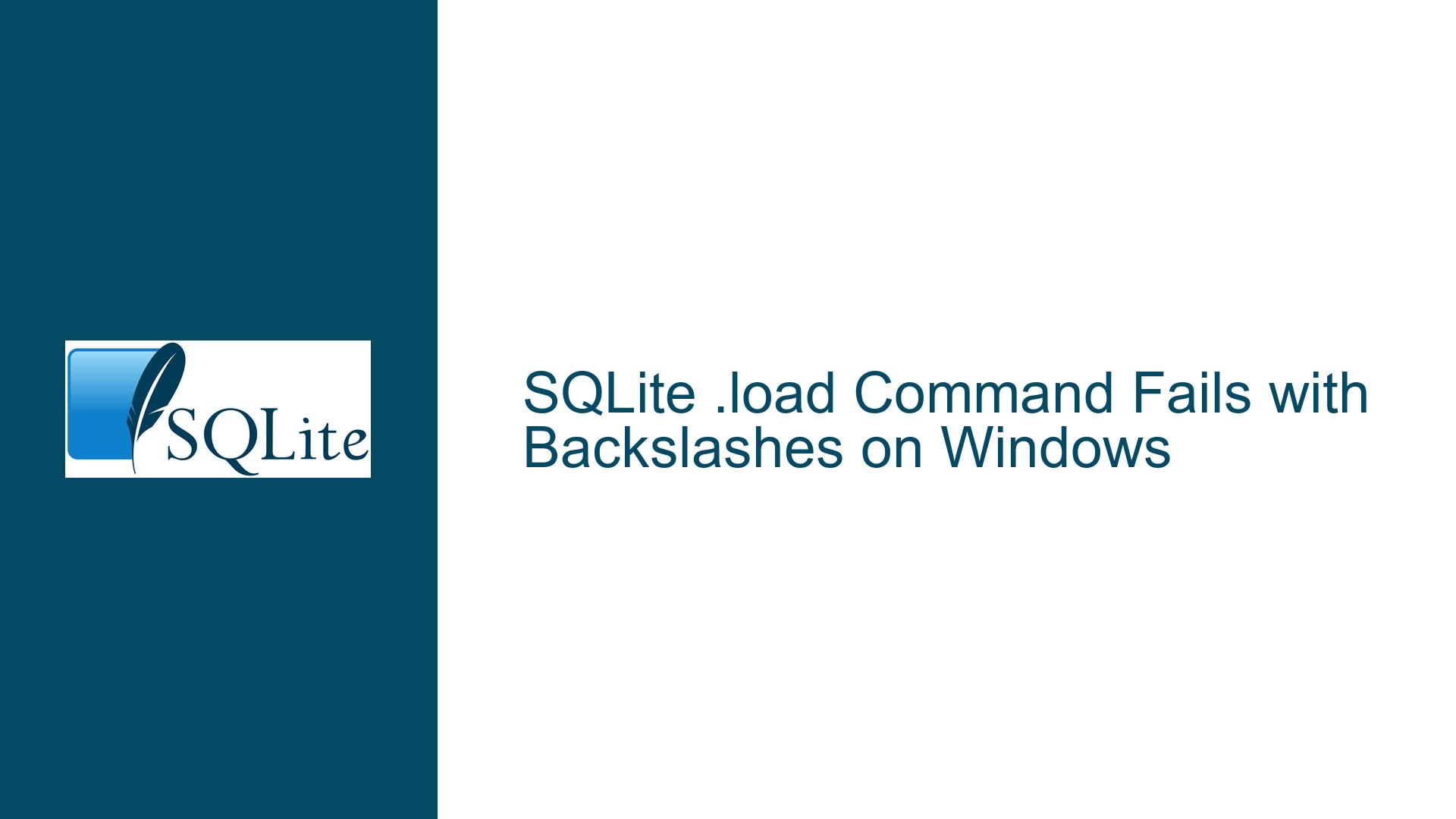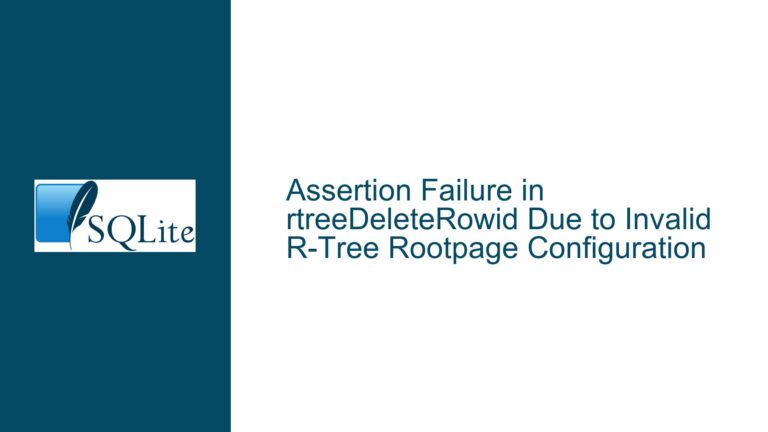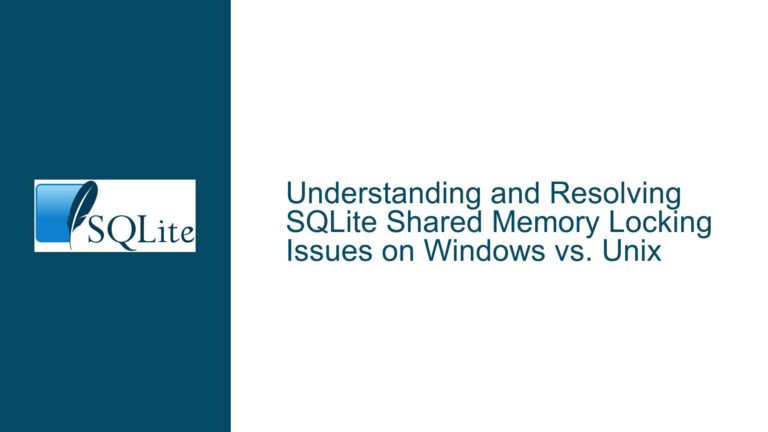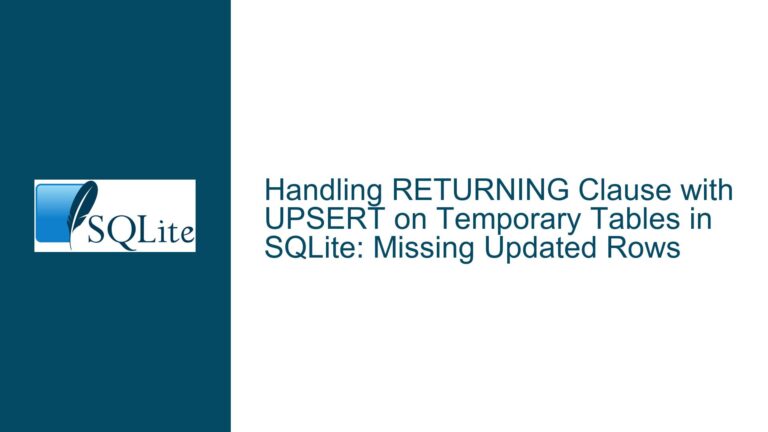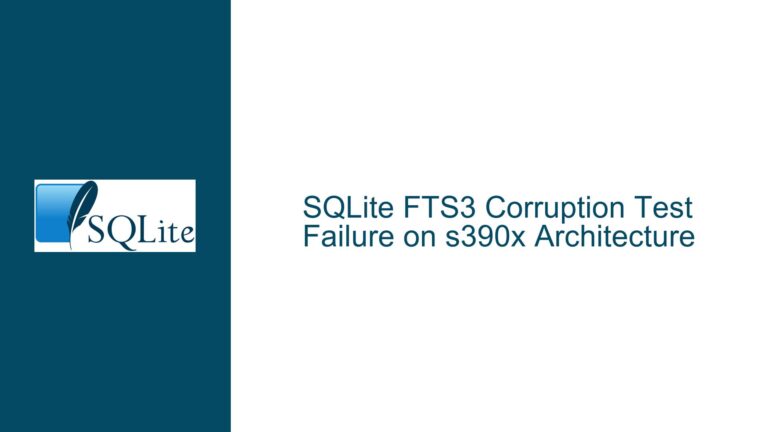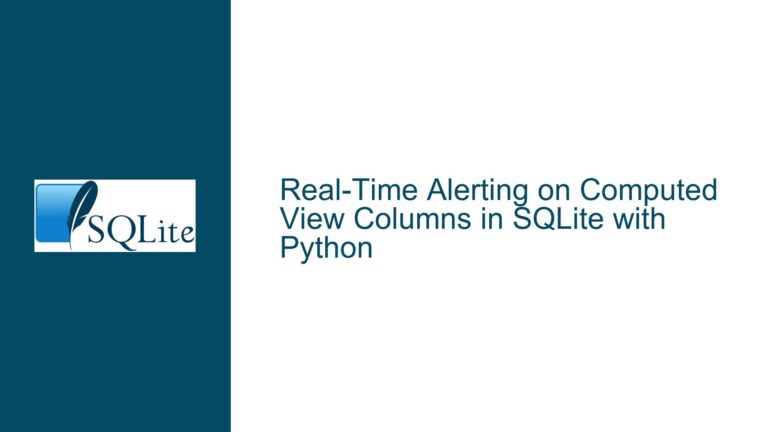SQLite .load Command Fails with Backslashes on Windows
SQLite .load Command Rejects Backslashes in File Paths on Windows
The SQLite .load command, used to load extensions dynamically, exhibits a peculiar behavior on Windows systems where it fails to process file paths containing backslashes (\) as path separators. This issue is particularly noticeable when users attempt to load extensions using paths copied directly from Windows Explorer or other Windows-native tools, which predominantly use backslashes. While the Windows operating system itself is agnostic to whether forward slashes (/) or backslashes are used as path separators, the SQLite shell and the load_extension() function enforce a preference for forward slashes. This enforcement leads to unnecessary inconvenience and confusion, especially for users who are unaware of this subtle requirement.
The problem is not limited to the .load command in the SQLite shell but also affects the load_extension() SQL function. When a path containing backslashes is provided, the function fails to derive the correct entry point name for the extension, resulting in an error message such as "The specified procedure could not be found." This behavior is inconsistent with the Windows operating system’s flexibility in handling path separators and contradicts the intent apparent in the SQLite codebase, which includes numerous clauses to handle Windows-specific path separators.
Backslash Handling in Path Parsing and Entry Point Derivation
The root cause of this issue lies in the way SQLite parses file paths and derives entry point names for extensions. On Windows, the backslash character (\) is not only a path separator but also a legitimate escape character in Unix-like environments. This dual role complicates the parsing logic, as SQLite must distinguish between the two uses. The current implementation in the sqlite3LoadExtension() function does not account for backslashes as path separators when deriving the entry point name, leading to the observed failure.
The function attempts to extract the base name of the file (without the directory path) to construct the entry point name. It does so by searching for the last forward slash (/) in the path. However, on Windows, paths often use backslashes, and the function fails to recognize them, resulting in an incorrect entry point name. For example, when the path c:\Bin\natsort is provided, the function fails to extract natsort correctly, leading to the error.
This issue is exacerbated by the fact that the Windows command shell itself treats forward slashes as option markers, further complicating the interaction between user input and SQLite’s path parsing logic. While the Windows operating system’s APIs are agnostic to the choice of path separator, the SQLite library’s parsing logic is not, leading to a mismatch between user expectations and actual behavior.
Fixing Backslash Handling in SQLite’s Path Parsing Logic
To resolve this issue, the path parsing logic in the sqlite3LoadExtension() function must be modified to recognize backslashes as valid path separators on Windows. This can be achieved by adding a conditional check for backslashes in the loop that searches for the last path separator. The modified code would look like this:
memcpy(zAltEntry, "sqlite3_", 8);
for(iFile=ncFile-1; iFile>=0 &&
#if SQLITE_OS_WIN
zFile[iFile]!='\\' &&
#endif
zFile[iFile]!='/'; iFile--){}
This change ensures that the function correctly identifies the last path separator, regardless of whether it is a forward slash or a backslash, on Windows systems. The modification has minimal impact on performance and code size, as it only adds a single conditional check for Windows builds.
In addition to modifying the code, users can adopt the following workarounds to avoid encountering this issue:
Use Forward Slashes in Paths: When specifying paths in the SQLite shell or the
load_extension()function, use forward slashes (/) instead of backslashes. For example, instead ofc:\Bin\natsort, usec:/Bin/natsort.Provide the Entry Point Name Explicitly: When using the
load_extension()function, provide the entry point name explicitly as the second argument. This bypasses the need for SQLite to derive the entry point name from the path. For example:SELECT load_extension('c:\Bin\natsort', 'sqlite3_natsort_init');Modify the SQLite Source Code: For users comfortable with modifying and building SQLite from source, applying the above code change to the
sqlite3LoadExtension()function will resolve the issue. This approach is particularly useful for developers who need to distribute custom builds of SQLite with this fix included.
By implementing these solutions, users can avoid the frustration caused by the current backslash handling behavior and ensure that their SQLite extensions load correctly on Windows systems. The proposed code change aligns SQLite’s path parsing logic with the flexibility offered by the Windows operating system, providing a more consistent and user-friendly experience.
